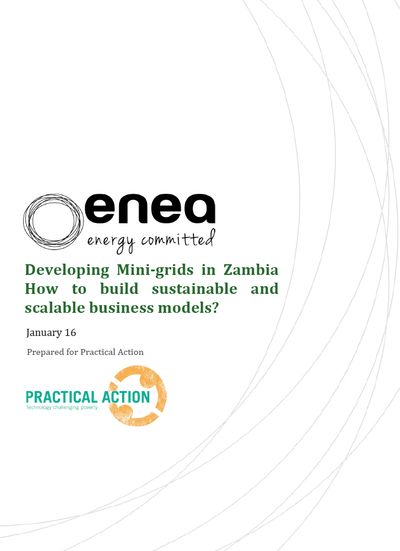Which business models for mini-grids in Zambia?

Mini-grids will be one of the key solutions to supply electricity in rural Zambia, as in many sub-Saharan African countries. Blunomy (Enea Consulting) supported the NGO Practical Action to shift the emphasis on sustainable business models for mini-grids. The outcome of this work is to be shared among all relevant stakeholders, including public and private organisations as well as financing institutions.
Going beyond community-based mini-grids
As part of this study, key learnings are derived from a selection of micro-hydro mini-grids, implemented by Practical Action or other organizations in Zimbabwe, Malawi and Zambia. The various difficulties identified make us believe that the mainstream community-based mini-grid models are not suited to tackle the various rural electrification challenges.
Involving private organisations in a structured mini-grids program
A new model must be built. Our point of view is that involving the private sector is necessary to overcome the sustainability issues hampering the community-based models. To successfully do so, Enea and Practical Action propose guidelines to lower regulation and profitability barriers and thus allow the development of mini-grids in Zambia. Main recommendations include:
- Improve mini-grid’s financial profitability through stronger revenues. Supporting the customer side to increase electricity consumption and so optimise the load factor is a priority.
- Improve mini-grid’s financial profitability of mini-grid through cost decrease. Clustering mini-grids should be the most efficient way to significantly decrease the global cost by aggregating key activities.
- Mobilise the appropriate resources and skills. Highly qualified teams, with both technical and management skills, must be involved in these endeavours to successfully manage and operate mini-grids.
- Initiate a structured program involving public institutions to foster the development of mini-grids. In Zambia, the currently complex political and regulatory frameworks prevent the involvement of private organisations. We recommend launching a structured program to overcome current barriers, along with an adaptation of the legal framework.